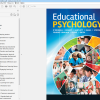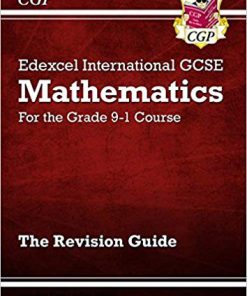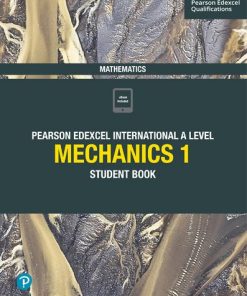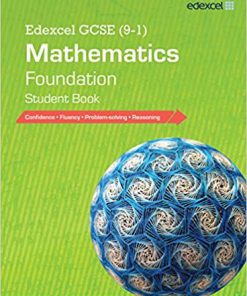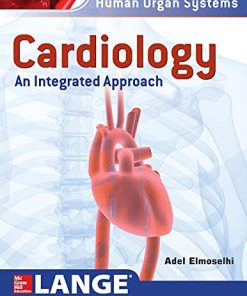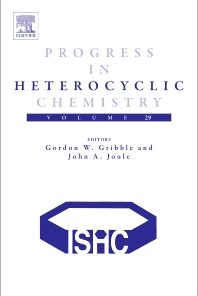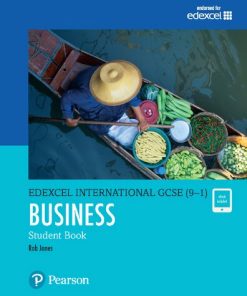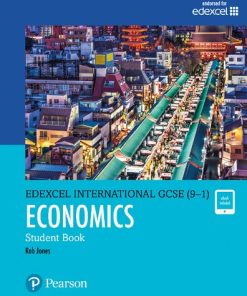(eBook PDF) Edexcel International GCSE (9-1) English Literature
$50.00 Original price was: $50.00.$35.00Current price is: $35.00.
(eBook PDF) Edexcel International GCSE (9-1) English Literature – Instant Download
(eBook PDF) Edexcel International GCSE (9-1) English Literature – Digital Ebook – Instant Delivery Download
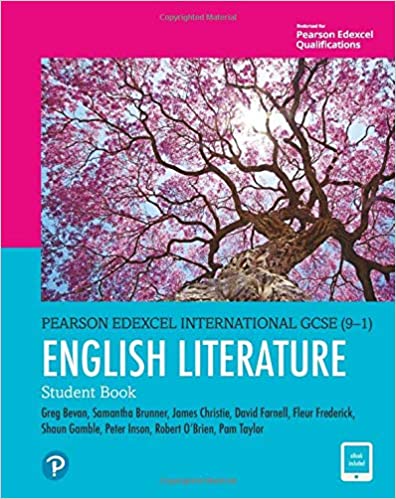
product details:
- ISBN-10 : 0435182587
- ISBN-13 : 978-0435182588
- Author: Pam Taylor
These new resources have been written for the new 9-1 grading scale, with progression, international relevance and support at their core. The new 9-1 grading scale ensures a consistent international standard of qualification. The increase in levels of grading allows learners to achieve their full potential and make more informed decisions about their options for progression. A fully integrated Progression Map tool allows quick and easy formative assessment of student progress, linked to guidance on tailored learning solutions, helping students make the best progress they can. The embedded transferrable skills that are needed for progression into higher education and employment, are explicitly signposted allowing students to understand, and engage with, the skills they’re gaining. Online teacher support will save you valuable time when planning, teaching and assessing. Each Student Book provides access to an ActiveBook, a digital version of the Student’s Book , which can be accessed online, anytime, anywhere supporting learning beyond the classroom. Specifically developed for International learners , with appropriate international content, making it engaging and relevant for all learners and allowing for learning in a local context, to a global standard. EAL-focused content , checked by an EAL specialist, addresses the nee
table of contents:
- Chapter 1: Old English Literature
- Chapter Introduction
- Development of the English Language
- “Caedmon’s Hymn” and the Venerable Bede
- “The Dream of the Rood”
- Beowulf
- Chapter 2: Middle English Literature
- Chapter Introduction
- Introduction to Middle English Literature: The Medieval World
- William Caxton and Printing in England
- Medieval Drama
- Sir Gawain and the Green Knight
- Geoffrey Chaucer (1343–1400)
- Julian of Norwich (1342–1416)
- Chapter 3: The Sixteenth Century
- Chapter Introduction
- The Sixteenth Century
- Sir Philip Sidney (1554–1586)
- William Shakespeare (1564–1616)—The Sonnets
- Christopher Marlowe (1564–1593)
- Sir Walter Ralegh (1552–1618)
- Elizabeth I (1533–1603)
- William Shakespeare (1564–1616)—The Plays
- I Henry IV
- Much Ado About Nothing
- Twelfth Night
- Chapter 4: The Early 17th Century
- Chapter Introduction
- The Early Seventeenth Century
- John Donne (1572–1631)
- Andrew Marvell (1621–1678)
- Robert Herrick (1591–1674)
- John Milton (1608–1674)
- Chapter 5: The Restoration and Eighteenth Century
- Chapter Introduction
- The Restoration and 18th Century
- Jonathan Swift (1667–1745)
- Alexander Pope (1688–1744)
- Frances Burney [Madame D’Arblay] (1752–1840)
- Samuel Johnson (1709–1784)
- Thomas Gray (1716–1771)
- Chapter 6: The Romantic Period
- Chapter Introduction
- The Romantic Period (1798–1832)
- Charlotte Turner Smith (1749–1806)
- William Blake (1757–1827)
- Robert Burns (1759–1796)
- Mary Wollstonecraft (1759–1797)
- William Wordsworth (1770–1850)
- Dorothy Wordsworth (1771–1855)
- Samuel Taylor Coleridge (1772–1834)
- Jane Austen (1775–1817)
- George Gordon, Lord Byron (1788–1924)
- Percy Bysshe Shelley (1792–1822)
- John Keats (1795–1821)
- Chapter 7: The Victorian Era
- Chapter Introduction
- The Victorian Era (1832–1901)
- Charles Dickens (1812–1870)
- Emily Brontë (1818–1848)
- Elizabeth Barrett Browning (1806–1861)
- Robert Browning (1812–1889)
- Alfred, Lord Tennyson (1809–1892)
- Matthew Arnold (1822–1888)
- Oscar Wilde (1854–1900)
- Chapter 8: The Twentieth Century
- Chapter Introduction
- The Twentieth Century
- Thomas Hardy (1840–1928)
- Joseph Conrad (1857–1924)
- The War Poets
- Virginia Woolf (1882–1941)
- T.S. Eliot (1888–1965)
- Philip Larkin (1922–1985)
- Carol Ann Duffy (1955–)
people also search:
You may also like…
Ebook-PDF
(eBook PDF) New Edexcel International GCSE Mathematics Revision Guide – for the Grade 9-1 Course
Reference - School Guides & Test Preparation
Medicine - Cardiology
Education Studies & Teaching - School Education & Teaching
Pearson Edexcel International GCSE (9-1) Business Student Book 1st Edition Rob Jones – eBook PDF
Education Studies & Teaching - School Education & Teaching
Pearson Edexcel International GCSE (9-1) Economics Student Book 1st Edition Rob Jones – eBook PDF

